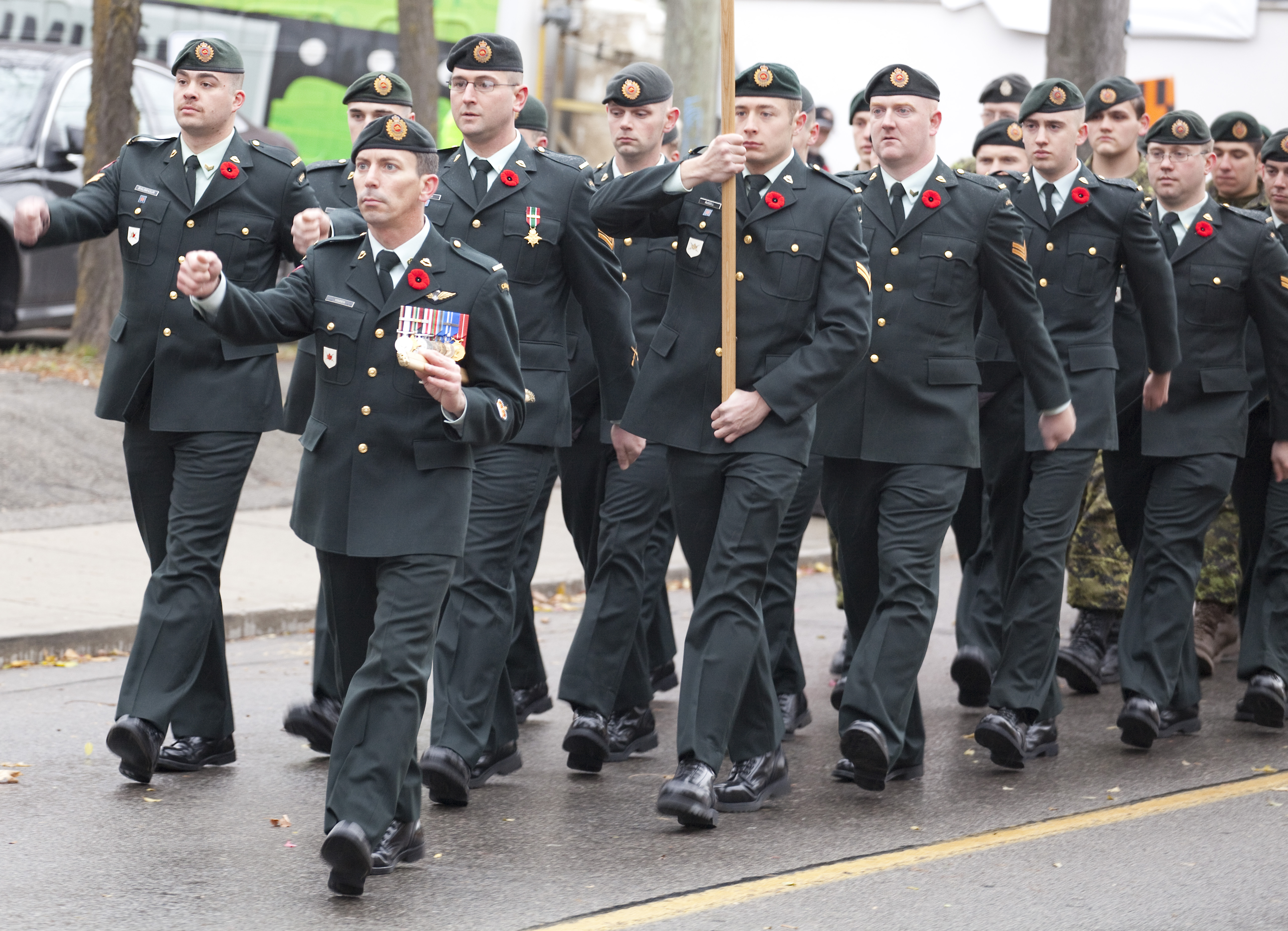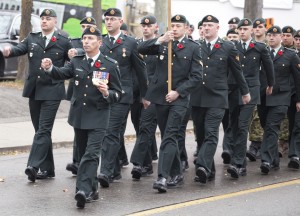Event held ‘to honour our past’


Waterloo Region gathered in uptown Waterloo on Monday morning to remember and honour those who fought in war.
The annual Remembrance Day ceremony began at the Royal Canadian Legion on Regina Street North and worked its way up to Waterloo’s Cenotaph beside city hall.
Hundreds braved the cold weather and offered their moment of silence at 11 a.m..
“Today was really amazing,” said Catherine Fife, the MPP for Kitchener-Waterloo. “We had a veteran who could actually stand up in front of people and connect the history of World War II.”
Fife, whose grandfather actually fought in World War II, explained her involvement with the day’s event.
“Every year I come here,” she said. “It’s just a way to honour our past and remember our future.”
But according to World War II veteran, Murray Scherman, Remembrance Day isn’t necessarily for the veterans and surviving soldiers.
“It’s for those who didn’t come home,” he said.
Scherman served as a corporal in WWII for four years, where he started off in England, moved his way to Italy and then travelled the south of France. He came home to Canada and now heavily supports community programs, such as Legions for veterans.
“There’s a camaraderie here with our fellow men,” he said. “We fill that with the Legion.”
The Waterloo branch of the Royal Canadian Legion announced its intention this fall to sell their building due to debt of nearly $30,000. Membership has dwindled from a high of more than 1,400 members to just 600 remaining.
The Insurance Bureau of Canada provided a $5,000 donation on Monday in hopes that the contribution will help the Legion relocate.
“This is a commitment for us for those who have given so much for us to make sure that we have a country that is as great as it is today,” said Doug DeRabbie, director of government relations, Ontario, for the Insurance Bureau of Canada.
A food truck festival was also planned after Remembrance Day ceremonies with the intention of raising support for members of the Legion.
“This is good. This gives us a lot,” Scherman added.
Fife also discussed the troubling financial issues of Legions across the province.
“The issue of sustainability for Legions in the province of Ontario is definitely an issue and that is why it is so important,” she said. “Because this is the way that we remember our past.”
WWII veteran Albert Goebel speculated that educating youth and children about the hardships of war would also keep their legacy alive.
“Ceremonies like this is the only way that we can teach younger people what we went through,” he said. “In October, we have a ‘Why We Remember Week’ here and about 1,500 children come through that week.”
Goebel, 92, served as a special travel driver in the second World War for four years. He also received numerous medals of honour, including a Voluntary Service Medal and a War Medal.
When asked if he felt youth were being influenced by Remembrance Day ceremonies, he was optimistic.
“I think so,” he said.
“Because they ask a lot of questions and I think this is a good thing.”
Fife, who has an extensive background in education and school boards, emphasized that education is imperative to making Remembrance Day events successful.
“There has been a national call for schools to have a holiday on Remembrance Day,” she mentioned. “I understand that the government can take time off to have this, but I think it is so important for the role of education to play in this recognition of Remembrance Day.”
“It’s knowing our history and you can’t be influenced by it if you don’t know about it.”

